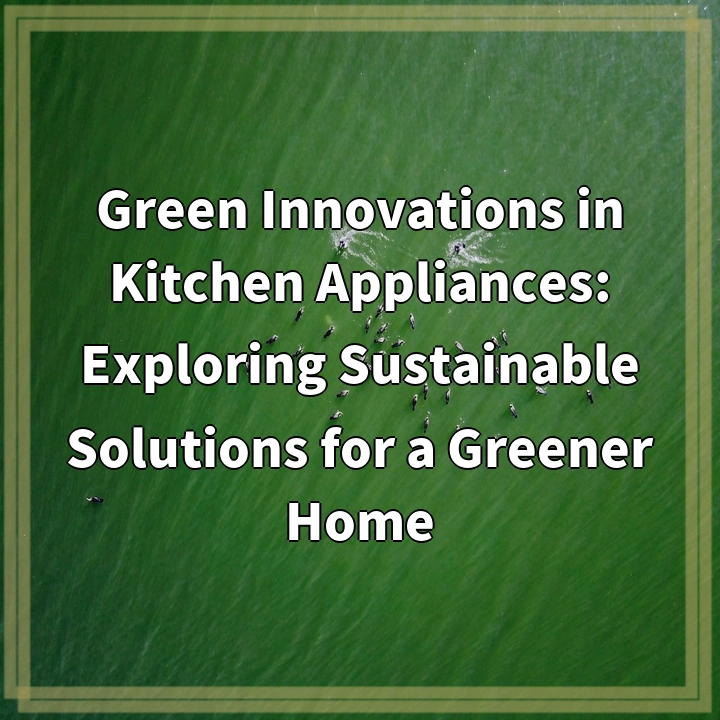
What it is:
Kitchen appliances play a crucial role in our daily lives, but their traditional design and energy consumption have detrimental effects on the environment. Green innovations in kitchen appliances aim to address these issues by introducing sustainable solutions that not only reduce our carbon footprint but also promote a greener home.
Real-World Problems:
1. Energy Inefficiency: Traditional kitchen appliances are often energy-intensive, resulting in high electricity consumption and increased greenhouse gas emissions. This contributes to climate change and affects our planet’s overall sustainability.
2. Water Waste: Many kitchen appliances, such as dishwashers and refrigerators, consume excessive amounts of water. This leads to water scarcity and strain on local water resources.
3. Toxic Materials: Some kitchen appliances may contain harmful materials like lead, mercury, or PVC. These substances pose health risks to both humans and the environment, especially when the appliances reach the end of their lifecycle and are improperly disposed of.
4. Food Waste: Inefficient refrigeration systems, improper temperature control, and limited storage options can contribute to food waste in the kitchen. This not only impacts the environment but also increases expenses for households.
5. Limited Recycling Options: Kitchen appliances often have a long lifespan, but when they eventually need to be replaced, finding proper recycling options can be challenging. Improper disposal can lead to landfill waste and the release of hazardous substances into the environment.
By understanding these real-world problems, we can explore and appreciate the importance of green innovations in kitchen appliances. These innovations offer sustainable alternatives that address these issues and bring us closer to achieving a greener home for a better future.

Summary of Solutions:
1. Energy Efficiency: Green innovations in kitchen appliances focus on improving energy efficiency by using advanced technologies and design features. These include energy-saving modes, smart sensors, and improved insulation to minimize energy consumption and reduce greenhouse gas emissions.
2. Water Conservation: Sustainable kitchen appliances incorporate water-saving features such as low-flow faucets, efficient dishwashers with eco-cycles, and smart water management systems. These innovations help to reduce water waste and promote responsible water usage.
3. Use of Non-Toxic Materials: Manufacturers are increasingly using non-toxic and environmentally friendly materials in the production of kitchen appliances. This reduces the risk of harmful substances being released during use or disposal, ensuring safer and more sustainable products.
4. Improved Food Preservation: Green kitchen appliances prioritize optimal food storage and preservation. They feature advanced cooling technologies, proper temperature controls, and storage configurations that help extend the shelf life of food, reducing food waste and saving money.
5. Recyclable and Eco-Friendly Designs: Eco-conscious kitchen appliances are designed with end-of-life recycling in mind. Manufacturers are incorporating recyclable components and using fewer materials overall to reduce waste. Additionally, appliance companies are implementing take-back programs to ensure proper disposal and recycling options for their products.
By embracing these solutions, homeowners can make their kitchens more sustainable and contribute to a greener home. Investing in green innovations in kitchen appliances not only benefits the environment but also promotes energy and water savings, reduces waste, and improves overall efficiency in the kitchen.















